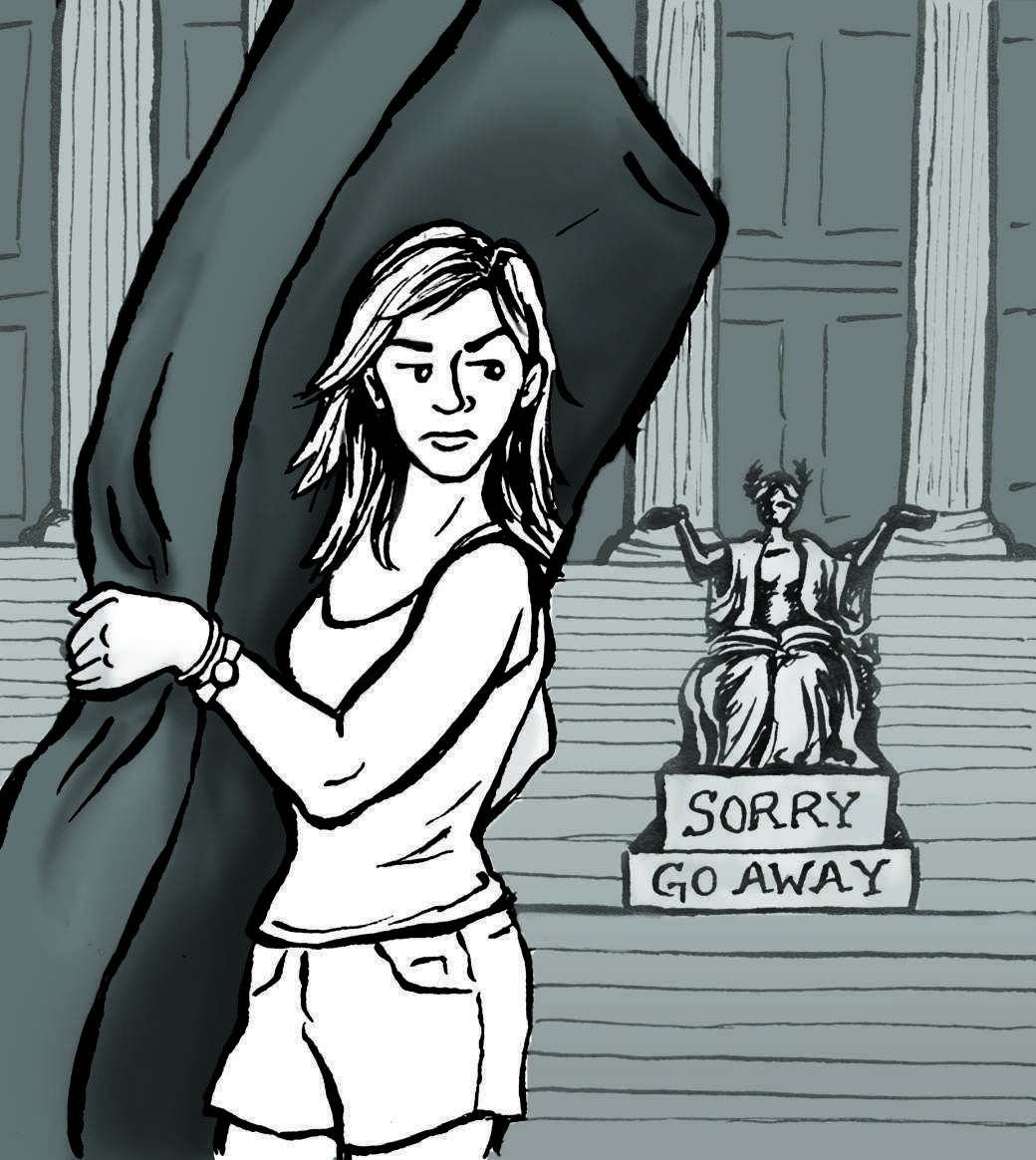I’ve always felt funny about my own bed. It’s mine, and that is very clear to my friends and family. It’s where I go to curl up and feel better, to sleep, to dream, to eat, study, text, cry, watch Netflix, stare at the wall and relax. My roommate got off the phone with her brother the other day, fuming. I asked her what was wrong and she said, “My brother is sleeping in my bed! He has his own! Why is he in my bed?”
I laughed. “It’s just a bed,” I said. But she was right: it’s hers. So imagine your own bed. It’s cozy, warm and safe. It’s a sacred place, in some respects. Now imagine that place being violated, completely taken away from you while you are pow- erless. It’s not yours anymore. It’s sad and filled with memories that make you feel horrible about yourself and about human- ity. And you have to return there every night and try to sleep while you toss and turn and wonder where he went, who he’s
hurting now and if he will he ever hurt you again.
Emma Sulkowicz, a senior at Columbia University, knows exactly how this feels. She was raped on the first night of her sophomore year. Now, for her senior thesis project, Emma is carrying around her dorm mattress to all of her classes un- til her rapist leaves campus. She calls the project “Carry That Weight.” Embarrassed and ashamed by what happened, she didn’t report the incident until she discovered that two other girls were also raped by the same attacker. The university led an investigation, but ultimately the man was not found guilty. There are so many things wrong with this situation. The underwhelming amount of support Emma is receiving from the university is unacceptable. Columbia University released
this statement to People magazine:
“In recent months, Columbia has announced a new Gen-
der-Based Misconduct Policy for Students, opened an ad- ditional Sexual Violence Response and Rape Crisis/Anti- Violence Support Center, expanded mandatory training for incoming undergraduates on consent and the importance of bystander intervention and launched a new ‘Step Up’ cam- paign to help prevent gender-based misconduct from occur- ring in the first place.”
The university, which also has a “Sexual Respect” Web page, explained the investigation process for when a student files a complaint.
“There is a full investigation,” Suzanne Goldberg, special advisor on sexual assault and prevention and response at Co- lumbia, tells People. “If we find someone responsible for rape, there are serious sanctions. They could be suspended or ex- pelled. We take it very seriously.”
First of all, I don’t think “gender-based misconduct” does justice to the horrible, humiliating violation that is rape. Em- ma’s attacker wasn’t teasing her about having cooties; he raped her. Rape, which is a federal crime, is not at all synonymous with “gender-based misconduct.”
And second, let’s all take a minute to read this statement once again. “If we find someone responsible for rape, there are serious sanctions. They could be suspended or expelled. We take it very seriously.” They could be suspended or expelled. Is there no better way to punish the perpetrators of rape than prohibiting them from attending class for a while? What, are they going to a timeout to think about what they did?
Sexual violence awareness is constantly taught in our schools and communities. There is medical help available to victims and hotlines to help with emotional stress. But it’s still happening and it’s still going unreported. If there is one in- cident, there is one too many. The concept of consent might be a relatively new idea for our culture, but it’s not a difficult concept to understand.
There is no excuse for this kind of crime, and I’m sick and tired of reading about the Emmas who are left undefended in these situations. There should be no tolerance for this be- havior, and it’s time that everyone – students, institutions and governments – realize that.
Emma Whitford ’18 [email protected] is from Middleton, Wis. She majors in political science.
Graphic Credit: ERIN KNADLER/MANITOU MESSENGER



